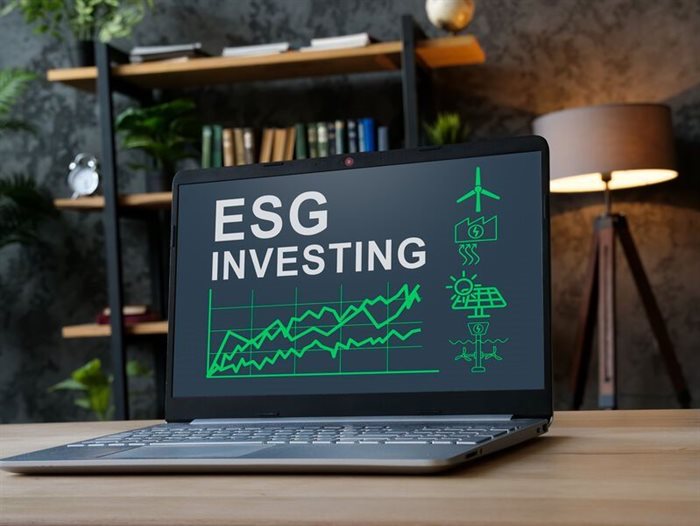Still others have argued that there are too many ESG standards and that ESG compliance is overly complex. Indeed, The Economist has gone so far as to argue that ESG should be abandoned and replaced with one simple measure: emissions. It’s an understandable line of thinking too. The climate crisis is an existential threat in the most literal sense and everything possible should be done to address it.
While some aspects of these criticisms may be valid, many of them aren’t. Deployed properly, an ESG-based investment approach can still be incredibly effective when it comes to making returns while making the world a better place. That’s true around the globe, but it’s especially true for Africa.
The problem with a single, simple measure
In order to demonstrate how ESG can still be effective, it’s worth looking at where The Economist’s proposed solution falls flat. On the face of it, ditching the social and governance arms of ESG and replacing the environment arm with emissions has obvious appeal. In theory, it would make environmentally responsible investing a lot easier. In fact, it could be boiled down to: don’t invest in the companies with high emissions; invest in the ones with low or zero emissions.
But you very quickly run into problems with this approach. For starters, humanity’s impact on the environment isn’t limited to climate change. Should investors give companies that pose a threat to water resources or whose activities degrade soil quality relief just because they’re not major emitters?
It should also be clear that investors shouldn’t give companies with poor social and governance track records a free pass. Just because social and governance standards are difficult to measure doesn’t mean we should stop trying.
It’s additionally worth mentioning that we already know that 100 companies are responsible for 71% of global emissions since 1988. Investors looking to move away from high emission companies don’t have to look far and ESG’s existence isn’t stopping them from doing so.
Missing the point

Bryan Turner, partner at Spear Capital
Furthermore, anyone calling for ESG to be scrapped is missing a major point. That is, ESG is a way of helping the world achieve the United Nations Sustainable Development Goals (SDGs). Should we just boil the SDGs down to one goal and focus on that? Obviously not, unless you think things like poverty, gender equality, education, inequality, and other societal ills are all sorted now and emissions is the last problem left.
As such, the calls to scrap ESG are picking on the wrong thing. If investors want one measure of emissions, we should introduce that one measure for emissions only, and make it a stand-alone requirement. It doesn’t need to be driven by ESG - it can come as a requirement from auditors, chairman’s reports, disclosure filings, and any number of other parties.
In many ways, it’s like criticising accountants for making financials too complicated and arguing that they should just focus on revenue as that’s something that everyone can understand. For a lot of the interested parties in a business, that one measure simply isn’t enough.
If people want to just look at one metric, make companies give that explicitly, but don’t hand out free passes on all the other aspects. The last thing the world needs is to give companies an easy out that they can use to distract people from their other issues.
Investing from the bottom up
It’s also worth noting that much of the criticism around ESG focuses on its impact on publicly listed companies and large-scale investors. But that’s only part of the ESG picture. As an ESG-focused investor backing high-growth companies in Southern Africa, we’ve seen first-hand what a difference it can make.
When it comes to the future of the planet and society, investors don’t just need to keep an eye on the companies of today but the ones of tomorrow too. That’s even more important when you remember that by 2017, 52% of companies on the Fortune 500 index in 2000 had either gone bankrupt, been acquired, or ceased to exist.
That same eye on the future should be applied to geographic markets too. And that means there are very good reasons for investors to focus on Africa. The continent’s median age is under 20 years old, with 60% of the population under the age of 25. This youthful population will very likely become the world’s labour engine in the coming decades, especially as other populations around the globe start to age out. That young population is also increasingly entrepreneurial and is likely to build many of the businesses that determine the planet’s future.
If investors can reward the companies who are doing good for the planet and society in these markets, should they not be given the opportunity to do so? And should we not at least try and have standards against which investors can measure these companies?
It’s also worth mentioning that the focus on bettering society is more significant for Africa than in other markets. With the continent accounting for just 3.8% of global emissions, there is significant scope to reduce hunger and poverty without having to worry about a massive emissions leap.
Simply put, we cannot look at investment in Africa through a European lens.
Some might argue that these standards should be regulations set by governments, but how then do you go about rewarding good companies in “bad” countries? It’s also worth pointing out that companies can sometimes be ahead of the government policy curve and can even positively influence it.
Pieter Bensch 29 Aug 2022 Evolution not dissolution
None of this, of course, is to say that ESG is flawless. Some of the criticism levelled against it is valid. But that doesn’t mean the calls for its dissolution are valid too. It simply means that our understanding of ESG and the ways we measure it must evolve as they always have.
No matter what the naysayers may think, we can do good by doing business - and ESG remains one of our best approaches to doing so.










































